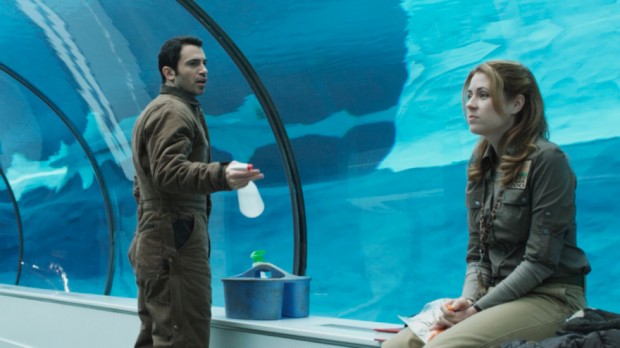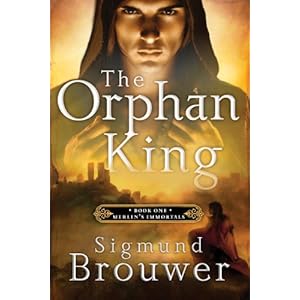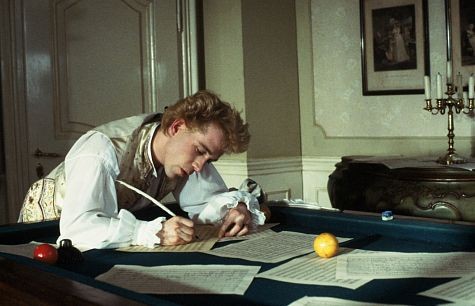When I was in high school, I read the Sherlock Holmes stories to friggin' bare threads ( as most of you readers know). At this point, I didn't own them, so I would sign out every edition from my school and public library (props, little Orillia, props!) and then return them and sign out ANOTHER edition. Because I was a badass at that.
Anyway, I would start at the beginning ( and by the beginning I mean
A Scandal in Bohemia, because, face it, after Watson and Holmes move in together, the rest of
A Study in Scarlet is rather boring and
Sign of Four just means Watson moves away---albeit to marry Mary Morstan -- -but still kinda sad) and read through. I didn't every really separate one of the collections (such as
The Adventures from another such as
The Return. They all bled into each other and I knew, I always knew, I had 56 short stories and four novels to play with. One night I remember sitting at my parent's kitchen table with carnation hot chocolate, eating english muffins with jam and just indulging. A little Sherlock feast. I had had a long day of rehearsals (I did a lot of performance and community theatre then) and just needed some time at Baker Street. I remember then thinking,
This is AWESOME! and I made a list of some of my favourites:
1.)
A Scandal in Bohemia [obvy!]
2.)
The Three Garridebs [because Holmes has to tell Watson he loves him]
3.)
Speckled Band [holla!]
4.)
Hound of the Baskervilles
5.)
Dying Detective [because Watson almost touches that little box with the sharp syringe and ALMOST DIESSSSSSSSSSSSSSS and because I learned what belladonna is --- I had to look it up --- and because they get to go to dinner at the end]
6.)
Charles Augustus Milverton [because after a cold supper: which, in my mind, was always bread and cheese and lamb and sherry ---- I was a kid, remember, I thought sherry was just THE drink, y'all], they cut out silk masks and go a-burglaring
7.)
Resident Patient
8.)
Solitary Cyclist
9.)
Priory School [he MADE you drop the oranges in that carafe, Watson, that was TOTES not your fault]
10.)
The Veiled Lodger [Sherlock has a heart! Her life is not her own to take! It almost sounds Christian!]
11.)
The Blue Carbuncle [goose]
12.)
the Empty House [ oh Holmes! you and your books about druids! also, you're a jerk face for leaving Watson out to dry after Reichenbach]
13.)
Six Napoleons [guys! YOU GUYS!!! awesome Gregson and Lestrade stuff!!]
and so on and so forth .... lots of awesome and lovely stories.
Then there were the ones I liked to skip....
In his introduction to the Bantam double-set complete paperback edition, Loren D. Estleman ( the intro is called 'On the Significance of Boswells', or something of the sort, FYI, which proves he is awesome because anything Watson-esque is fine by me), he mentions that the Sherlock-centric ones --- the reminiscences and the ones devoid of Watson-ness--- are rather dull because Sherlock is just too big and broad and vain NOT to be countered by an every-man such as Watson. One of the reasons I don't like some of the following is just that. I need my balance. I love my Holmes; but I NEED my Watson:
1.)
Musgrave Ritual [this is worth it for the Paget illustrations; but little else indeed]
2.)
The Final Problem [my heart can't handle it. Your fault, ACD, I know that you tried to kill him. Worse still, you let Watson believe he was dead. Worse still, Sherlock went to Mycroft instead of Watson and we all know this is gonna happen in the BBC version and I will not be HAPPY! ]
3.)
Bruce-Partington Plans
4.)
Black Peter
5.)
The Mazarin Stone [which incidentally is the worst of the Granada lot, too]
6.)
Valley of Fear [this is personal opinion, kids, I know people love it]
7.)
Blanched Soldier
8.)
Lion's Mane
The latter two are listed ( as is the first) for precisely the reason Estleman mentions: the Sherlock-driven stories with lack of Watson ---or, indeed, narrated by Sherlock --- are just not up to snuff when it comes to the fare I want to accompany my carnation-hot-chocolate-drinking-muffin-eating-post-high-school-community-theatre-reclusiveness-with-an-edition-or-12-from-the-library.
Anyhow, this all started because I am currently reading
Bending the Willow which recounts Jeremy Brett's portrayal of Holmes in the awesome Granada series and the writer recounts how no one knew how to film
The Engineer's Thumb so they never did. While they were thinking of the mechanics of bringing this creepy story to life, I was thinking: meh!
You guys? Weigh in, my dears.















